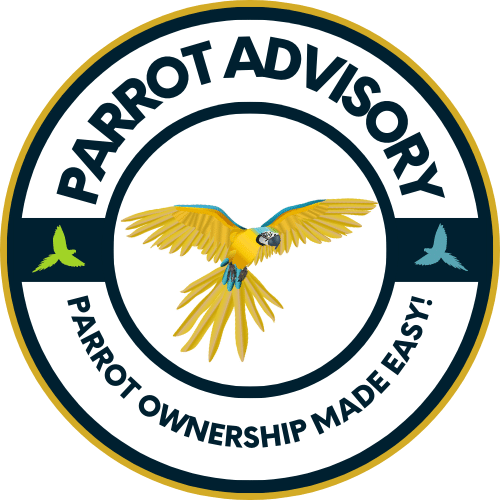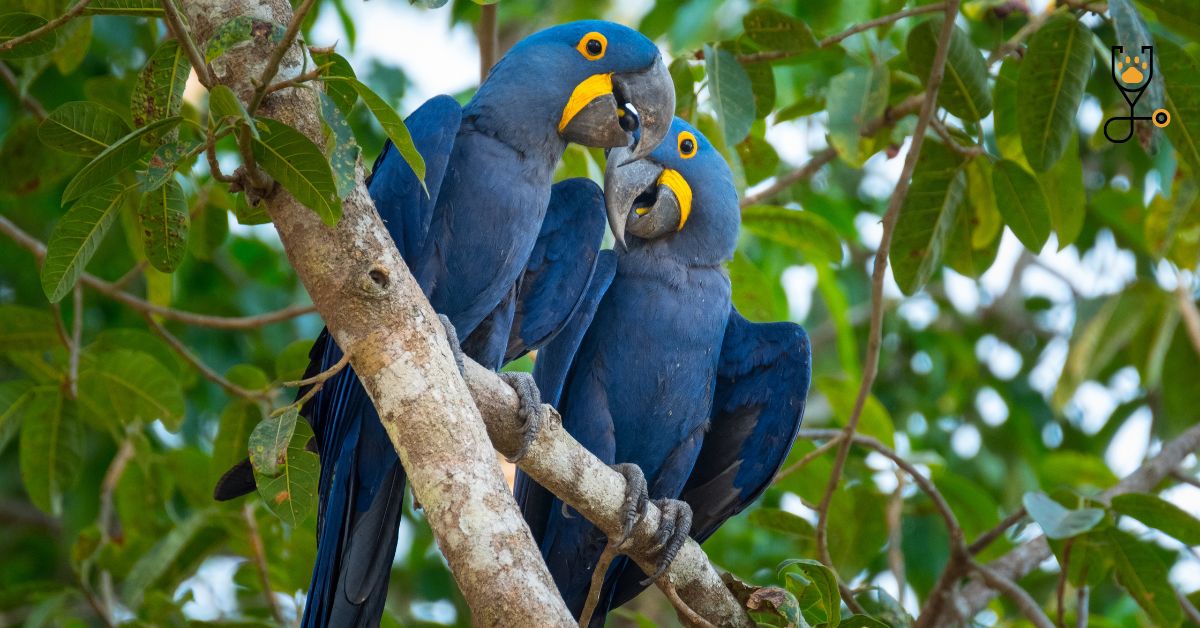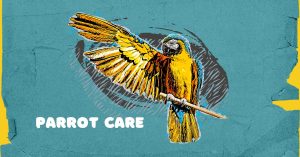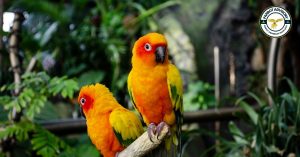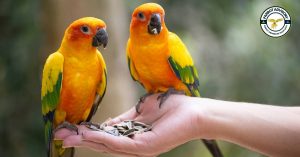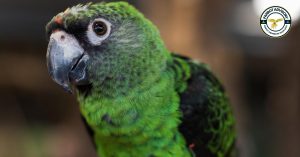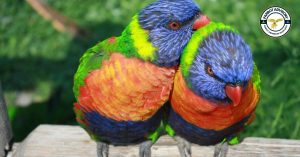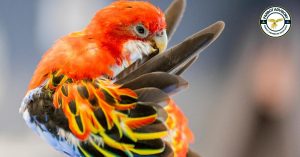Do you have a pet hyacinth macaw and want to make sure they receive the best care possible? Are you a veterinary professional wanting to brush up on the unique needs of this beautiful blue parrot species? Then this blog post is for you! Take a deep dive into why hyacinth macaws are so special, their specific nutritional requirements, ideal environmental conditions, and tips on keeping them stimulated mentally. This blog post has all the information you need to give your feathered friend anything they might need – from health care insurance plans tailored to exotic birds, toys that fuel curiosity, and comfort food recipes only your hyacinth will adore. Ready to learn how properly caring for these magnificent animals can result in a life-long bond? Let’s get started!
Hyacinth Macaws (Blue Parrots)
Hyacinth macaws are a rare and beautiful species of parrot native to Brazil, Bolivia, and Paraguay. With their striking blue feathers, they have become increasingly popular as companion pets – although, it should be noted, they are a long-term commitment. That’s why it is important to arm yourself with the knowledge of how to properly care for them in order to create a fulfilling relationship with your feathered friend.
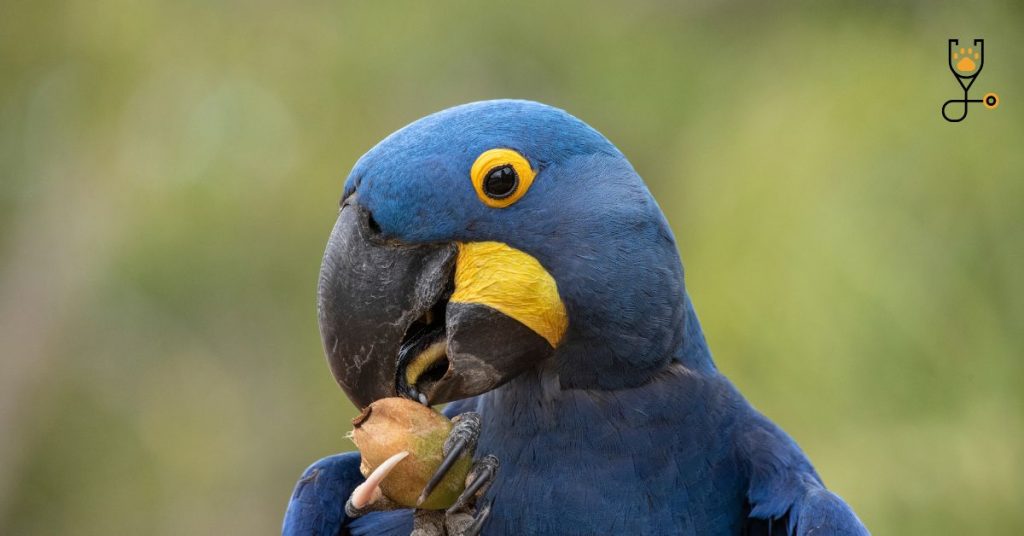
1. Unique Needs of the Hyacinth Macaw Species
Nutritional Requirements
These large parrots require an ample daily intake of foods rich in proteins, fats, and carbohydrates. A diet composed mainly of nuts, seeds, fruits, and vegetables can help provide them with all the nutrients they need. Additionally, bird-safe calcium supplements may be necessary depending on the individual macaw’s needs.
Environmental Conditions
In addition to their diet, hyacinth macaws also have several environmental requirements that should be met in order to ensure optimal health. These include a large enclosure with plenty of space to fly and explore, as well as an appropriate temperature range (anything between 60°F-80°F should do the trick). Additionally, they need access to UVB lighting in order to metabolize their food properly, and a dust bath or shower once in a while to keep their feathers clean and healthy.
2. Mental Stimulation Ideas
Toys that Fuel Curiosity
Hyacinth macaws are incredibly intelligent creatures, so it is important for them to stay mentally stimulated throughout the day. Investing in quality toys that promote playtime can go a long way toward keeping your feathered friend happy and entertained. Look for ones made from bird-safe materials that can be manipulated in such a way as to encourage problem-solving, as well as ones that make interesting noises or are brightly colored.
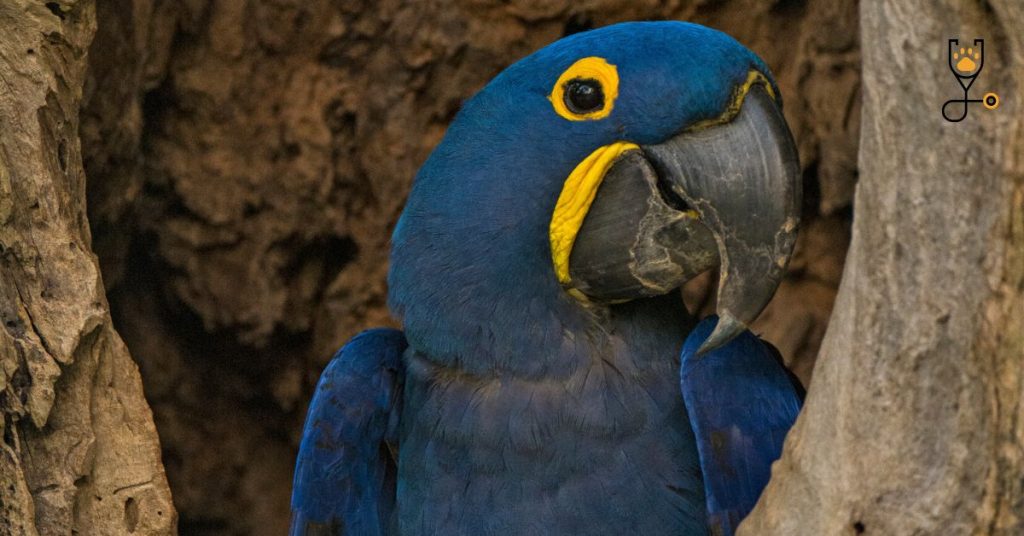
Comfort Food Recipes
In addition to toys, you may also want to consider providing your hyacinth macaw with some special treats from time to time. This can be anything from their favorite fruits and veggies, to healthy recipes for homemade bird bread and cakes. As always, variety is key – the more flavors your parrot gets exposed to the better!
3. Health Care Insurance Plans
As with any pet, it is important to make sure your hyacinth macaw has the necessary health insurance coverage. This can come in the form of a traditional plan, or one tailored specifically to exotic birds. In either case, veterinary visits should be scheduled on a regular basis in order to keep an eye out for any potential problems
4. Rescue and Adoption
Finally, if you’re looking to welcome a hyacinth macaw into your home but are unable to care for one full-time, there are plenty of rescue organizations out there that can help. From adoption centers to reputable breeders – these resources can provide you with an opportunity to give a homeless bird the loving forever home they deserve.
We hope this blog post has been informative and inspiring in helping you properly care for your hyacinth macaw. With the right knowledge and dedication, providing them with all their needs is entirely possible! And when it comes time to say goodbye, the bond established between you will be something truly unforgettable. So make sure to put in the effort now – your feathered friend will thank you later.
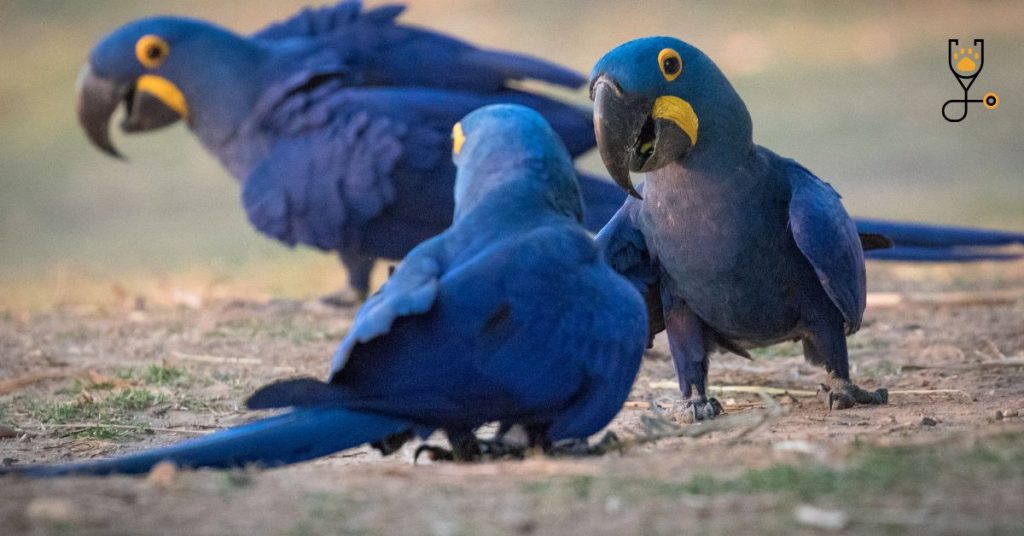
Conclusion
Caring for a hyacinth macaw can be an incredibly rewarding experience – but it is also important to make sure that you are fully educated on the unique needs of this species. By providing them with a diet rich in proteins, fats, and carbohydrates; as well as an environment that meets all their physical and mental requirements, you will be able to create a long-lasting bond with your feathered friend. With these tips in mind, we hope you have gained the knowledge necessary to give your parrot the love and care they deserve!
Good luck!
Frequently Asked Questions
You can monitor your bird’s weight and physical appearance to ensure they are receiving the proper nutrients. Additionally, you should check in with an avian vet to make sure that their diet is balanced and meeting all of their nutritional needs.
Hyacinth macaws require a large cage or enclosure with plenty of space to fly and explore, as well as an appropriate temperature range (anything between 60°F-80°F). They also need access to UVB lighting for proper metabolization of food, plus a dust bath or shower once in a while for feather health.
Absolutely! Hyacinth macaws are incredibly intelligent and can be taught a variety of tricks. With patience and consistency, you can train them to do anything from talking to playing fetch.
Yes – it is important to properly introduce your existing birds to any newcomers in order to avoid potential conflicts or aggressive behavior. Start by allowing them to get used to each other’s presence through a cage divider before eventually introducing them directly under careful supervision.
It is recommended that hyacinth macaws should visit an avian vet at least twice a year for routine check-ups and vaccinations. Additionally, you should always consult your vet if you notice any changes in behavior or physical appearance.
